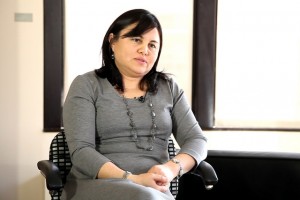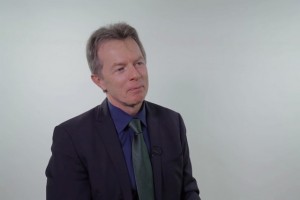Modelling Neurodegenerative Diseases with Stem Cel...
MIT Human Stem Cell Lab. Director Maya Mitalipova on age-related diseases, stem cells, and new ways to model n...
Music and autism is a really interesting subject, at least in my view, because a lot of the things that we that we look at in autism are very much to do with the social communication disability and the other kinds of things like obsessions and rigidity, sensory problems. Looking at music in autism is a way of getting a much fuller picture of the way that these people function and how they develop over time. I believe, it’s very important because it gives us an understanding of emotional, aesthetic qualities that people in autism have and these are not very often looked at in this kind of way.
If we think historically autism was first described in 1943 by Leo Kanner who laid down the basic principles of the diagnostic criteria in autism. But one of the things that people have not really taken on board was that he did talk about exceptional musical skills in these children, particularly their ability to remember extremely complicated music. Subsequently we’d begun to think this was really interesting when we think about it in the context of problems with language and other aspects of cognition. Another thing to note is that it’s quite important too that we’ve seen a massive change in the prevalence of autism over the last 10-20 years, so we have many more people now with a diagnosis of autism who are intellectually very high-functioning. Increasingly we’re seeing more and more people who are actually professional musicians who are performing music at extreme high level who do have a diagnosis of autism.
The work that I was most interested in was initially looking at tonal and rhythmic perception in music and autism. The impetus for this was really drawn from musical savants. Musical savants are individuals who have extraordinary musical ability but often have quite severe impairments in intellectual and language abilities. We saw in musical savants that they have unbelievable tonal skills, so they have extremely good pitch processing, very extraordinary memory for music and also skills that are a bit more unusual and unexpected: for example, we see some composing, we see lots of improvisation which is evidence of kind of flexibility and creativity that we wouldn’t predict that we would find in this group.
My original studies that I did in the late 90s were early aiming in looking at tonality and rhythmic ability (tonality more specifically) within groups of children with autism that we wouldn’t consider to be savants. These children didn’t had lots of musical training, they weren’t showing exceptional musical skills in a kind of accepted sense, but when we carried empirical studies with these children we found that they had extreme sensitivity to musical pitch. Then we began to think about these abilities in terms of theoretical accounts of autism, particularly I was interested in a weak central coherence theory which at that time predicted that children with autism would indeed be very sensitive to local aspects of stimuli and this was borne out by them having exceptional pitch. But this theory also predicted impairments in global information processing and when we came to look at music perception in autism we found that they didn’t have any global impairments: we found that they were processing melodic information and other kinds of very global aspects of music in an extremely normal way.
After that I became very interested in the idea of the emotion recognition impairments in autism. The empirical literature shows that people with autism are much less proficient than typically developing people in recognizing emotions on faces and emotions on voices. We looked at whether or not they will be able to recognize emotions in music and what we found was that they were recognizing emotions in music just as well as typically developing children.
Eventually we began to think about investigating this in different kinds of ways: we looked at whether or not we’re seeing heightened emotional responses and whether or not we’re seeing similar patterns of brain behavior in response to music in individuals with autism. Of course, these studies have been carried out by many labs around the country, especially in Canada, and researchers there have done a lot of this work. It seems to be the case at the moment that people with autism are very sensitive to emotions in music and it looks as the brain is processing musical information in very similar way.
I think we’re getting evidence now showing that therapeutic interventions using music are highly effective with people with ASD. We’re seeing a range of different kinds of therapeutic approaches, the art’s targeting interaction behaviors, language behaviors, emotional understanding, and they all seem to be yielding very positive results. I would say that these initial studies looking at musical building blocks, tonality etc, have developed into a program of research that has shown a very surprising sparing of musical abilities in this disorder.
We know that people with autism are very good at recognizing anger in music but much less good at recognizing anger on faces and in voices. What’s more, they find it difficult to recognize anger in themselves, so even though they’re very aware that they’re emotionally very aroused and they might be able to say: ‘I was insulted’ or ‘I saw someone behaving badly’ – they won’t be able to link that directly to the emotion of anger. This is a disorder called alexithymia, it’s very-very common in autism. We’ve done some work trying to look at whether or not we can capitalize on autistic people’s ability to understand emotions in music to educate themselves about these emotions so that they can then understand them in other contexts: for example, in the context of their own emotional states and the emotional states of other people.
One of the things that we need to be very clear about is that autism is exceptionally heterogeneous disorder. We see people with autism that are professors at mathematics in prestigious universities all the way through to people who have no language and function intellectually at quite low levels. So we have to be fairly wary of making generalizations but based on the research evidence which admittedly is mostly being carried out with more able individuals with autism we believe that they listen to music in ways that are very typical. For example, we’ve done qualitative research asking people with autism why they listen to music, what is it about music that makes it attractive to them. We found out that the kind of responses we get from them are so similar to those that we get from neurotypical people. I would probably say that listening experience is a very variable in autism but we can’t say that there are differences in neurotypical people in one very simple way.

MIT Human Stem Cell Lab. Director Maya Mitalipova on age-related diseases, stem cells, and new ways to model n...

Philosopher David Schmidtz on ethical dilemmas, moral institutions, and the nature of justice

Neuroscientist Friedemann Pulvermüller on brain activation, aphasia, and action-based language therapy